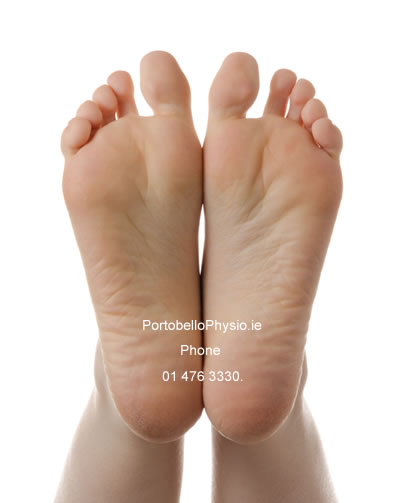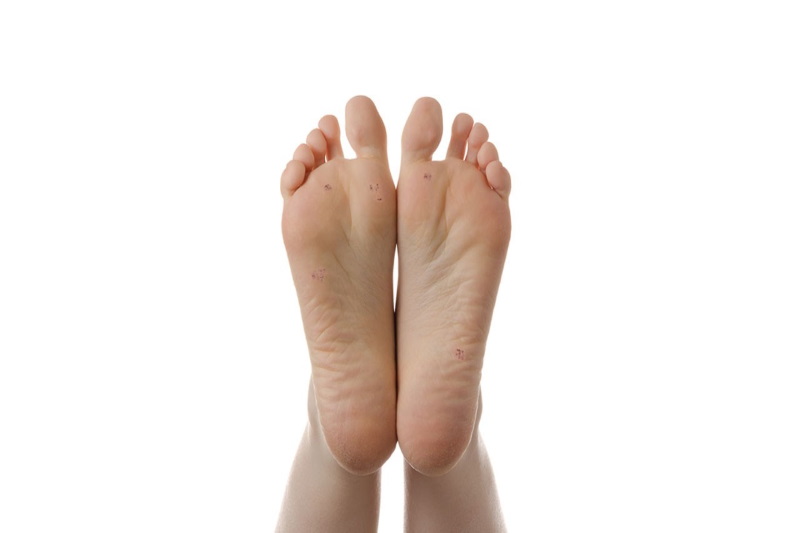Even if your feet don’t hurt, they may be contributing to your other aches and pains- the way your foot strikes the ground impacts your knees; your hips and your back.

Functional foot orthotics are custom-made rigid devices that you slip into your shoes to correct an abnormal walking pattern. They slightly alter the angle at which your foot strikes the ground, so your whole body is in better alignment.
Orthotics solve a number of biomechanically related problems, for ankle and knee pain, pelvis, hip, spinal pain. This is achieved by preventing misalignment of the foot, which significantly alters the way in which the bones move within their joints.
How Orthotics Work
Orthotics work by controlling abnormal motion across the joints of the foot. They’re made based on an impression of your feet so they fit perfectly; don’t feel hard or uncomfortable in your shoes (once you get used to them), and are made from a rigid type of material.
Orthotics hold your heel and mid-foot in a more stable position, so they can function more efficiently during weight-bearing and propulsion. This control is often accomplished by limiting abnormal pronation of the foot.
Pronation is a complex movement involving eversion (turning out) of the heel and forefoot. There is a corresponding internal rotation (turning in) of the lower leg, and flattening of the arch. Ligaments become strained, and muscles over- work in an attempt to pull the foot into a more stable position.
By controlling abnormal pronation, functional orthotics help prevent some of the complications of the chronically unstable foot. Functional posted orthotics should only be prescribed by a properly trained practitioner after a thorough biomechanical examination.
They won’t change the underlying structure of the adult foot so if you don’t wear them, abnormal function will immediately return. Orthotics are not just made for normal walking shoes but can be specially made to suit your sports shoe or boot.
Orthotics can work on foot complaints like bunions, calluses and corns, heel pain, Achilles tendinopathy and as our feet are the foundation of our body, they’ll provide relief for back, hip, and knee pain.
If you need correction of your alignment, your orthotics will take a while to get used to as your feet and legs have been functioning abnormally over a number of years, so expect some initial discomfort and gradually increase the length of time you wear them for rather than jumping into them for the whole day.
How the Feet impact the rest of the body
Your feet carry your whole weight, and the way you stand and move has a lot to do with how the rest of your body feels. Most people fall into one of three categories: a pronator, a supinator, or a neutral.
If you’re a pronator, it means that your foot arch collapses when your foot strikes (and you probably have flat feet when standing). If you’re a supinator, you have really high arches and tend to put all your weight out to the lateral (outside) edges of your feet. If you are a neutral, it means your arches are fine and you move properly through your stride.
Pronators and supinators have problems with their “arthrokinematics” (the way a joint moves), and this will impact their knees and lower back over time as the muscles, tendons, ligaments, and fascia which holds everything together will get pulled in the wrong directions; all reflected in what your feet are doing.
Being a supinator or a pronator means your knees rotate inwards or outwards, and will not be able to move with correct arthrokinematics. If your knees no longer move properly, it probably means your hip joints are also not moving properly.
If your hip joints are not moving properly, your ability to absorb impact from walking and running is severely reduced which puts extra strain in the feet, knees, and back.
What orthotics do is adjust your movement pattern to reduce some of the strain through your body. It’s important to also learn to restore balance to the muscles that are supposed to help you walk and run without pain in the first place.
To find out more about how and where you can get orthotics made for you, and to see if they can help you with knee, hip or back pain, call Portobello Physiotherapy Clinic on 01 476 3330.


